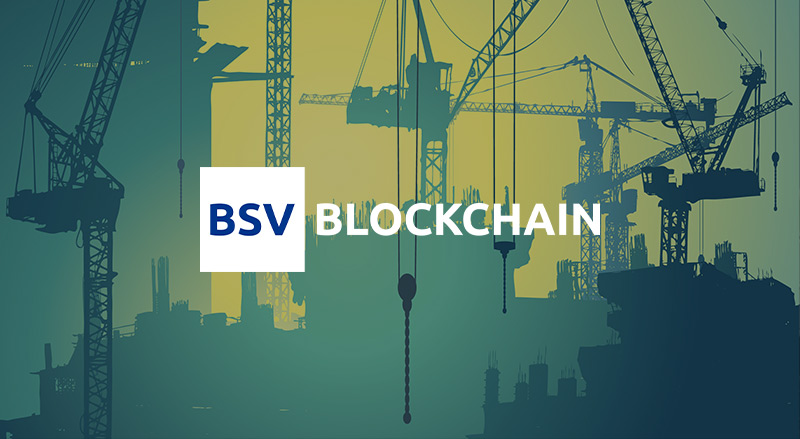Overview:
• The construction industry can benefit from blockchain technology by
providing transparency, accountability and a secure record of all
transactions related to a project.
• Bau App is an all-in-one construction-management solution that combines
IoT with blockchain and Metaverse, which can address some of the biggest
challenges facing the construction industry.
• Bau App operates on three fundamental principles: stakeholders can
register on the Bau marketplace for free, use Bau's construction
management tools to carry out the project and rate each other once the
project is completed.
• Bau App provides a database functioning as a 'material bank' for
multiple stakeholders that is built using IoT and Metaverse technologies,
and all data is stored on-chain.
• Smart contracts can be used to automate many of the processes involved
in a construction project, such as payment processing, project
milestones, and quality control.
• Bau App includes a circular construction marketplace, on-chain job
board for the construction industry, construction site management that
combines IoT and blockchain, and a payment system that uses
smart contracts.
• The Bau app charges 0.2% of each payment transaction among stakeholders
of construction projects.
The construction industry, which is known for its complexity, inefficiency, and lack of transparency, is an industry that can significantly benefit from the implementation of blockchain technology.
Construction is often criticised for its lack of transparency and accountability. There have been several cases where construction projects have been delayed or cancelled due to fraudulent activities or lack of transparency.
Blockchain can help solve this problem by providing a transparent and immutable record of all transactions related to a construction project. This can include all documents related to the project, such as permits, contracts, change orders, and payments.
How Bau is revolutionising construction via blockchain
To address these and other issues, Dr Maximillian Sinan Korkmaz developed the Bau App.
Bau is an all-in-one construction-management solution combining IoT with blockchain and Metaverse to tackle some of the biggest challenges facing the construction industry right now. Construction is consistently the least digitised sector and subsequently one of the least efficient, he said.
With blockchain, all parties involved in a construction project can have access to the same information, and any changes to the data can be tracked and recorded. This can help eliminate disputes and ensure that all parties are held accountable for their actions.
Blockchain can also help reduce the risk of fraud and corruption, as all transactions are recorded on a decentralised ledger that cannot be altered or tampered with.
According to Korkmaz, the Bau app considers these opportunities and operates on three fundamental principles. Firstly, stakeholders such as customers, general contractors, planners, subcontractors, and their employees can register on the Bau marketplace for free to find qualified stakeholders whose credentials are tokenised.
Secondly, stakeholders can utilise Bau’s construction management tools to carry out the project, with payments being made through smart contracts once they are due. Finally, once the project is completed, the payer and payee can rate each other.
Korkmaz highlighted that Bau charges 0.2% of each payment transaction among stakeholders of construction projects. Furthermore, the Bau App provides five primary offerings, including a database for ‘structure as a material bank built on Metaverse,’ a circular construction marketplace, an on-chain job board for the construction industry, construction site management that combines IoT and blockchain, and a payment system that uses smart contracts.
Improving supply chain and project management with blockchain
Supply chain management is a critical aspect of the construction industry, as it involves the management of materials, equipment, and labour. Blockchain can help improve supply chain management by providing a transparent and secure record of all transactions related to the procurement and delivery of materials and equipment.
With blockchain, all parties involved in the supply chain can have access to the same information, such as the origin and quality of materials, delivery schedules, and payment terms. This can help reduce the risk of fraud and delays, as all parties can verify the authenticity of the information and ensure that all transactions are executed in a timely and efficient manner.
Notably, the Bau app includes a database functioning as a ‘material bank’ for multiple stakeholders. This database is constructed using IoT and Metaverse technologies, and all data is stored on-chain. Korkmaz explained that the on-chain 3D digital twin of cities establishes a map of all structures such as buildings, bridges, and dams.
The materials and components used in each structure are then identified and made available in the construction marketplace for peer-to-peer purchases within the app when a structure is slated for demolition.
Using smart contracts in the construction industry
Smart contracts are self-executing contracts that can be programmed to automatically execute when certain conditions are met. They are one of the most exciting applications of blockchain technology in the construction industry. Smart contracts can be used to automate many of the processes involved in a construction project, such as payment processing, project milestones, and quality control.
For example, a smart contract can be programmed to release funds to a contractor when certain milestones are met, such as the completion of a foundation or the installation of plumbing. This can help eliminate the need for intermediaries and reduce the risk of payment delays and disputes. Smart contracts can also be used to automate quality control processes, such as inspections and certifications, ensuring that all work meets the required standards.
This plays into the idea of a wider circular construction marketplace, Korkmaz said.
‘Users can buy/sell used construction materials and components for reuse and can rent out their idle construction equipment,’ he said. ‘The credentials (e.g. ISO-certificate) of the sellers and buyers are checked and tokenised once.’
Korkmaz added that Bau acts as the only free job board for the construction industry. Credentials, such as training certificates, are checked and tokenised once and can be used many times.
